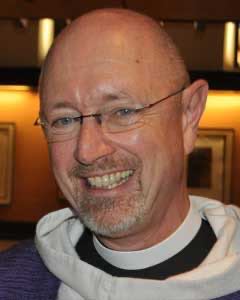IT’S THE EVENING of October 5, 1957, in Coalwood, West Virginia. A high school student, Homer Hickman (Jake Gyllenhaal), and others from the town stare into the night sky and see the Sputnik rocket streak across. Homer’s inspired: the rocket stands for everything he desires – excitement, energy, and a way out of town. October Sky, directed by Joe Johnston, is based on the autobiography of Homer Hickman Jr., a retired NASA science engineer. It’s a well told coming-of-age story with a particular twist: the only person really standing in Homer’s way as he and his friends experiment with rocket science is the supervisor of the coal mine in town, Homer’s dad, John Hickman (Chris Cooper). [pullquote]In an opening scene, a man has just been rescued from the mine. He’s brought up on a stretcher, and Homer, looking at the person who saved the accident victim says, “That’s my dad.” In a flash, John Hickman turns, chews out another mine worker and slugs him. “That’s my dad” says Homer again, and the film goes on to sketch the complex character of John Hickman, mine supervisor, father and guardian of the industry of Coalwood. Homer’s excitement about Sputnik leads him to learn everything he can about rockets. He joins forces with the class brain, an outcast named Quentin (Chris Owen), and with two other buddies Roy Lee (William Lee Scott) and O’Dell (Chad Lindberg) they begin to build rockets. Their first two launches are badly misdirected the rockets going off in all directions. Banished from town, the rocket boys continue their experiments in an isolated woods, building a shelter to protect themselves from exploding rockets. Encouraged by their teacher Miss Riley (Laura Dern) the boys continue their experiments, document their research, win the science fair, and finally, with the help of a machinist from the mine, are able to build rockets that climb straight up in the air and fly. But they get no support from John Hickman. In his view, all this excitement about rockets is wasted time: he believes, as do most others in Coalwood, that school is preparation for going down the mine. Homer’s dad thinks of himself as a realist: there’s only one industry in Coalwood, only one way to make a living, and – if it’s good enough for him and others, it’s good enough for his son. He sees Homer and sees a miner; Homer sees the mine and wants to get out. October Sky is a film filled with contrasts. You go with miners as they take the elevator down below and see how they work in cramped conditions, bending over to retrieve coal, inhaling dust, being anxious about collapsing walls. And you see the boys out in an open field, crowding behind a lean-to, counting down as a fuse ignites, and then watching as a rocket lifts and soars into the sky. You see Homer’s mom, Elsie, in the kitchen of their company owned home, stencilling on the wall a sketch of a tropical island, a sunny paradise – the complete opposite of the gray, rainy, dusty town of Coalwood. This is a film about imagination, passions and transformation. Homer, not the brightest kid in class, has his imagination captured by an idea. He becomes passionate, invites others to join him and learns, not because of school requirements, but because of his own interest. His father, duty-bound, compassionate in his own way and secure is finally able to appreciate his son’s vision – and their relationship is restored. Both through the course of the film are transformed. At Easter, as the church seeks to find ways to express the hope that comes from the new life found in Jesus Christ, October Sky stands as a testament to the possibility of change, the importance of imagination, and the hope of new life that keeps so many alive in seemingly inescapable situations
Peter Elliott is dean of Christ Church Cathedral, Vancouver, and a member of the board of directors of the Vancouver Film Festival.





